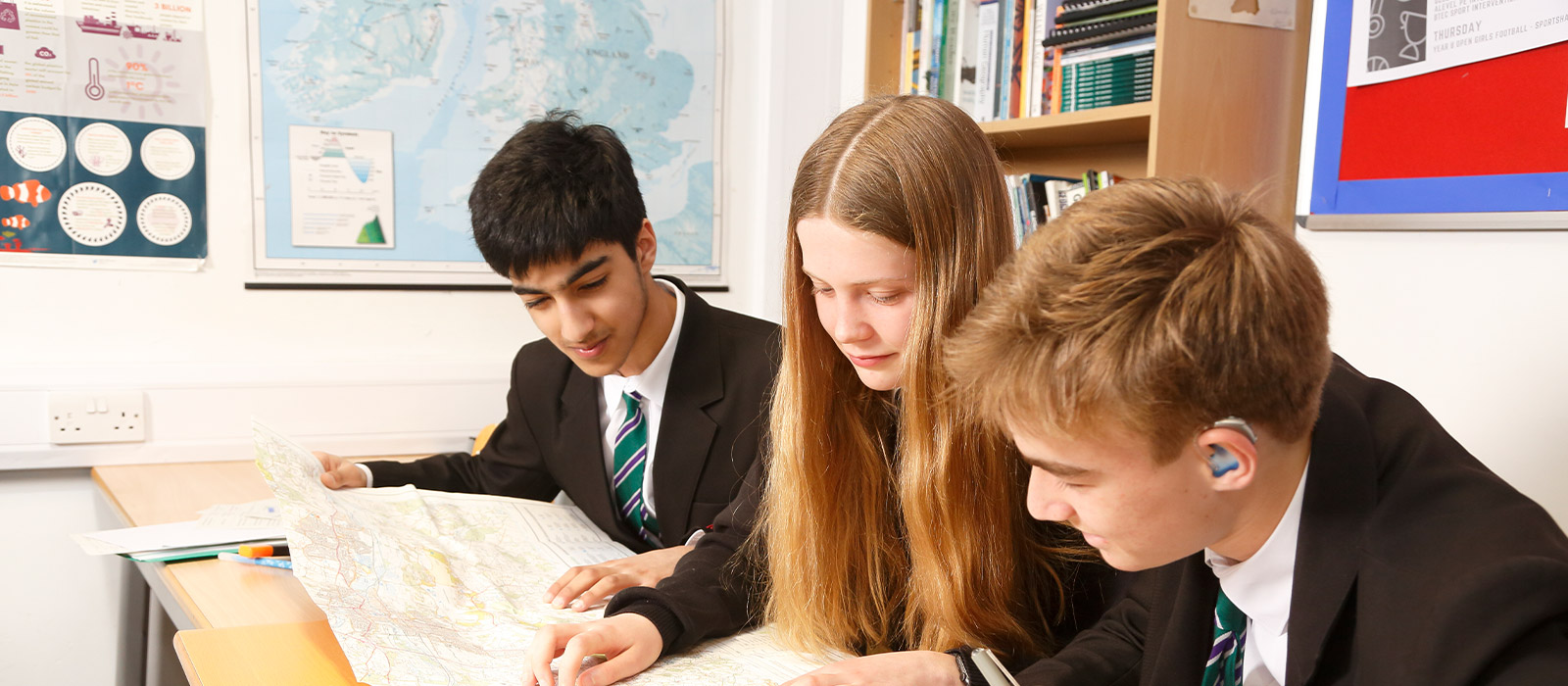Learning in Years 10-11
St Bart’s has an exceptionally strong record of performance in GCSEs and Level 2 BTECs. Most students take 10 subject qualifications at the end of Year 11.
Subjects
All students in Year 10-11 study a core curriculum leading to GCSE qualifications in:
- English Language
- English Literature
- Mathematics
- Science (Combined or Separate)
- Religious Studies
Year 10 Options
The option process for choosing GCSEs & BTECS courses takes place in the Spring Term of Year 9. In addition to the core curriculum, the majority of students are given choices that include:
- a language (French, German or Spanish).
- a choice of three additional subjects from a selection of 19 (17 GCSEs and 2 BTECs).
Timetabling of subjects is demand-led and based on choices which students make in any given year. This allows almost all students to study their first choice combination of subjects.
We identify a slightly different route for some students where prior and current attainment suggest a full set of GCSEs, including a language, may not be appropriate. In consultation with students and parents, students are offered a Core Skills programme which focuses on developing work and life skills, as well as approaches to learning that will support progress across the curriculum. Alongside this programme, students study all the core subjects (apart from a language) and make two additional subject choices from a selection of 17 (15 GCSEs and 2 BTECs).
Year 10 – 11 Enrichment
In addition to GCSE and BTEC subjects, all students take part in
- two hours on alternate Friday afternoons of KS4 Extra
- one hour a week of core PE
KS4 Extra
KS4 Extra gives students the opportunity to enrich their learning through a choice of activities. Students pick their KS4 Extra option in the Spring Term of Year 9 and commit to their choice throughout Years 10 and 11.
Students are supported in choosing a first choice and a reserve activity (as numbers are limited in some of these options). Below are the enrichment options available to Year 9 in 2025:
- CCF (Army OR Navy OR RAF) (leadership)
- Fitness opportunities at our local sports centre (fitness and sports)
- Community Action group (community and charity work)
- Dance Leader qualification (leadership)
- Horticulture (community work)
- Introduction to Social Science (research and academic)
- Visual Arts Award (creativity)
Core PE
During Key Stage 4 all students access one hour of Core PE a week. Our main aims are to get students participating, for students to find a sport that they continue to participate in when they leave school and to promote a healthy lifestyle. Read more about our Sports offer at St Bart’s.
In Core PE, students are in 6 groups, with the curriculum based around spaces and students choosing the sports that they want to take part in (modules of sport change termly). As well as the sports played during Year 7-9, we also offer alternative sports such as aerobics, pilates, yoga, table tennis, frisbee, tag rugby, orienteering and tchoukball.
Sessions challenge the more able by teaching advanced skills and tactics and by giving opportunities for leadership through coaching and officiating. All students are encouraged to play for sports teams and attend co-curricular clubs. Our Friday afternoon KS4 Options (below) also offers fitness, sport and sport leadership options.
Homework
At St Bart’s we firmly believe in the value of homework in order to support students’ independent learning skills, their organisation, and their overall engagement in learning. Students who successfully engage with their Homework are proven to make significantly more progress with their studies.
Students in Years 10 and 11 receive:
- 45 minutes a week for subjects with 1 or 2 hours a week of lessons
- 90 minutes a week from subjects with 3 or more lessons in a week
Parents and carers are able to monitor Homework on Satchel:One, and we encourage them to do this on a regular basis. There is a parents’ information section on Satchel:One which can be accessed on this link here. In particular there is guidance about managing notifications, which can be found here. There are a number of notifications that can be activated, but please be aware that not all of them are used by the school. The most useful notifications for parents and carers are:
- Task published
- Tasks marked as not submitted
- Homework Detentions
- Grade added
Parents’ Evenings and Reports
At St Bart’s we carefully monitor progress. We have personalised high expectations for all students based on their own prior attainment, recognising their personal achievement and ensuring all students receive the level of challenge that is right for them. Progress levels are not based exclusively on the student’s attainment in assessments but determined by reference to a student’s:
- classwork and homework
- achievement and progress in assessed work
- overall performance in the subject
We communicate students’ progress with parents through regular reports and parents’ evenings. Parents are also welcome to contact the school with any specific questions they may have, either via their student’s tutor or directly with a subject teacher.
Reports are colour-coded to show which subjects are areas of strength and which are areas requiring further development.
In Year 10 and 11 we give an indication of the student’s ‘Most Likely Outcome’ (MLO) in each subject. The Most Likely Outcome gives an indication of the grade that a student is most likely to achieve in that subject at the end of the course. In all GCSE subjects the grading is on a 9-1 scale and the grade can be further refined with + or – signs (e.g. 5+ or 5-). For GCSE Combined Science, the grade is reported as a double grade (e.g. 5-6 or 6-6) as the qualification awards two GCSEs.
We also report on progress on Non Examined Assessments (NEAs). The report gives an indication of whether students are completing work according to the deadlines set. Under JCQ guidance we cannot give an indication of marks or grades until NEAs are completed. Details of marks are then shared with students and parents.
We feed back on a student’s performance in the following key areas:
- Engagement in Learning
- Quality of Homework
- Organisation
- Behaviour
Students are given a grade from Excellent progress, Good progress, Minimum expected progress, Less than expected progress and Unsatisfactory progress. Our expectation is that all students will aim to achieve a Good progress rating or higher across these key areas. For Engagement in Learning and Quality of Homework, there is a *STAR* judgement to recognise exceptional performance. Those students who achieve consistently high ratings across subjects are rewarded with a ‘Very Impressive Performance’ stamp.
Reports also give up-to-date information on attendance and an indication of a student’s engagement in the great range of enrichment activities offered by the school.
| Year 10 | Year 11 | |
|---|---|---|
| Reports | December, April, July | December, March |
| Parents’ Evening | March (in person) | October & January (both remote) |
| Exams | March & Summer Term | November |


